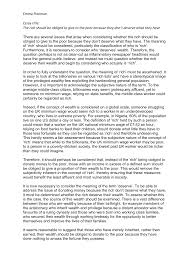If you’re wondering how to conclude an essay, there are a few ways to ensure that you close strong. Restating your thesis, supporting points, and rephrasing your main idea are all good ways to wrap up your argument and summarize your essay. Here are a few examples:
Conclusion
The Conclusion of an essay is where you sum up the main ideas in the essay and suggest broader implications. It is not a sales pitch, but rather a way to remind yourself of the points you have made throughout the essay. It can transform even a dull five-paragraph essay into a literary-critical argument. While the Conclusion of an essay cannot save a bad essay, it can transform it into a sparkler.
The conclusion should not include new information. You should simply restate the thesis and follow the outline of your argument in the body. If you include new claims in the conclusion, you will not be able to defend them. Instead, the conclusion will be irrelevant. The conclusion should remind the reader why the discussion was necessary. If you are trying to convey an important message, you should make use of an impactful sentence to remind the reader. When it comes to introducing new sources and information, try to make sure they make sense in the context of the essay’s conclusion.
Restating the thesis
Restating the thesis to conclude an essay can be a powerful way to round off your argument. A restated thesis is often more sophisticated and persuasive than the original one. The restatement is a moment in which the writer has established a connection with the audience, constructed a framework of evidence and reason, and delivered the final charge. This is also an excellent opportunity for the writer to showcase his or her voice.
When you restate the thesis to conclude an essay, make sure to incorporate a transition between the final line of your body paragraph and the first line of the conclusion. Transitions can be as subtle as a single word, or they can be as elaborate as an extended metaphor. But whatever the transition is, it must be subtle and convincing. Keeping in mind the audience’s expectations will help ensure that your conclusion is as impactful as possible.
Rephrasing the main idea
When rephrasing the main idea of an essay, remember to make your writing as unique as possible. Use different vocabulary and structure to rephrase the main idea without copying what’s already there. Make sure to include a link to the original text so your readers know exactly where to find it. The last sentence of an essay should rephrase the main idea of the essay. While it’s tempting to write something entirely new, it’s important to remember that plagiarism isn’t the same as paraphrasing.
Rephrasing the main idea to conclude your essay has several benefits. It helps the reader understand what you’ve said and why. A well-developed essay already convinces the reader of its points. It’s more effective to restate these points in a more concrete manner. Then, you can end your essay with a hook that ties back to the central idea of the essay. Remember, your hook is what caught your reader’s attention in the first place.
Rephrasing supporting points
Rephrasing supporting points to conclude an article can be done in a few different ways. One way to make an article more interesting is to replace the original words in the paragraph with synonyms. By using synonyms, you will give the text a new tone and structure. Another way is to add your own voice and add some additional details to the text. Either way, remember to include the source so that readers can learn more about the original material.
While rephrasing supporting points to conclude an essay can be an effective way to finish an essay, it is important to remember that it isn’t enough to simply restate the argument. You should instead rephrase your thesis statement and run through the outline of the argument that you developed during the essay’s body. If you introduce new points or sources during the conclusion, they will sound weak and irrelevant.
Using a quote
When deciding whether to use a quote to conclude an essay, consider the overall argument you’ve presented throughout the paper. The conclusion should give the reader a sense of closure, even if it does raise new questions or open up new possibilities. A good example of this would be a conclusion about the history of the Braille system. It might also be a reference to another source such as a biographer’s statement that illuminates the character’s response to Dublin.
In a literary essay, a quotation is a great way to make a main point more personal and powerful. If a reader is familiar with the phrase, he or she will be more likely to continue reading your paper. In the same way, using a quote will automatically raise your essay’s overall score. However, be sure to include a final sentence that discusses the meaning of the quote.
Including evidence
There are two types of concluding an essay. The first type of conclusion is a summary. It should summarize the main ideas in the essay. The second type of conclusion is an analysis of the evidence. The analysis should tie the evidence back to the main idea. In this type of conclusion, students summarize their arguments and provide evidence for their claims. Using evidence to support their claims can be a challenge, but it’s not impossible. Here are two examples of concluding an essay.
“Grab-bag” Conclusions include extra information that supports the main thesis. A writer may not want to leave out details, but adding random information could create confusion. A good example of a “Grab-Bag” conclusion would be a piece about Frederick Douglass’ relationship with his female relatives. These relationships help explain the role of family in the slave community. Another example is a biography of Frederick Douglass. This biography reveals the importance of family and community within a slave-holding community.

